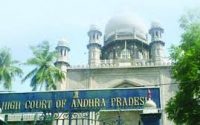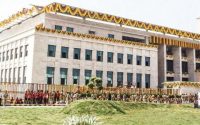$100 Website Offer
Get your personal website + domain for just $100.
Limited Time Offer!
Claim Your Website NowDaily Court Digest: Major environment orders (September 9, 2019)
Source: downtoearth.org.in
Down To Earth brings you the top environmental cases heard in the Supreme Court, the high courts and the National Green Tribunal
Hazardous waste
The National Green Tribunal (NGT) on September 6, 2019 heard the matter of remedial action against cheap waste paper and road sweep waste import for firing of brick kilns.
According to one Amit Jain, 900,000 tonnes of waste was imported, which is hazardous and is leading to air pollution.
The Central Pollution Control Board (CPCB) report of June 28, 2019, acknowledged that there was no proper mechanism for plastic waste management, which was being dumped in open or burnt in brick kilns resulting in pollution.
The NGT said that mere issuance of directions cannot be interpreted as adequate action and cited the orders passed by the tribunal in the past with respect to management of plastic waste. The tribunal called for execution of directions and submission of a report before the next date of hearing on October 16.
Srinagar hydroelectric project
A channel of Srinagar hydroelectric project on the banks of river Alaknanda in Uttarakhand is inundating crops and is affecting the lives of the residents of Mangsu, Surasu, Naur Thaapli villages in Tehri Garhwal district, the NGT was informed on September 6.
The tribunal through its order of May 23 had sought a report from a joint committee comprising representatives of the Uttarakhand’s Department of Power and Energy, the Uttarakhand State Pollution Control Board and the Tehri Garhwal’s district magistrate.
The NGT has directed the Alaknanda Hydro Power Corporation Ltd to ensure further action at the earliest in a time bound manner which may be overseen by the committee.
Lift irrigation scheme
A review application filed before the NGT alleged that lift irrigation scheme at Pattisema and Purushothampatnam was completed without getting environmental clearance (EC).
“If the said two projects have been completed without EC, there are accountability for illegal action may have to be gone into,” observed the two-member bench of Justices Adarsh Kumar Goel and S P Wangdi.
The tribunal had earlier refrained the Andhra Pradesh government from proceeding with the projects without EC, considering the report of the joint committee.
Further, with respect to Chintalapudi lift irrigation scheme and Godavari–Pennar Rivers linking project, the recommendations of the committee for completing the pending EC process needs to be considered.
To consider these aspects, the NGT on September 6 directed issuance of notice to Andhra Pradesh, Ministry of Water Resources and Ministry of Environment, Forest and Climate Change (MoEF&CC).
Ensure financial health of DMRC: SC
The Delhi government must bear any operational losses suffered during the Phase IV of the Delhi Metro project, the Supreme Court said on September 6.
“Metro is the local conveyance within the state and considering the nature of the facilities, the loss, if any, should be borne by the state government,” ordered the bench of Justices Arun Mishra and Deepak Gupta.
The Delhi government must provide support to ensure financial sustainability during operations and “ensure that the financial health of Delhi Metro Rail Corp (DMRC) is maintained properly and no steps are taken so that it may run into losses,” with respect to the repayment of Japan International Cooperation Agency’s (JICA) loan.
Further, of the land cost of Rs 2,447.19 crores, 50 per cent shall be borne by the state and 50 per cent by the Centre.



